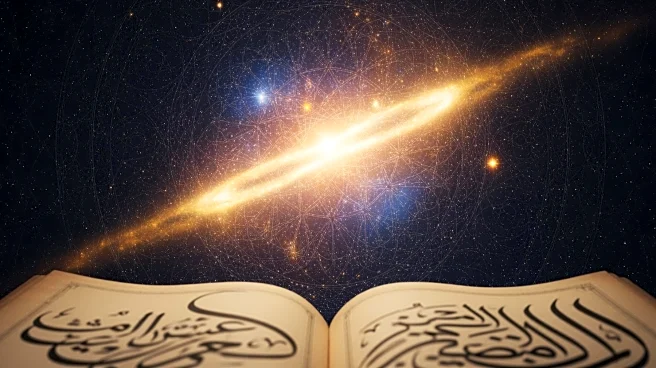What's Happening?
In 1181, a supernova lit up the skies, capturing the attention of astronomers and poets. This celestial event, recorded in ancient texts, has now been linked to a 12th-century Arabic poem by Ibn Sanā’
al-Mulk, offering insights into how astronomical phenomena were understood before modern telescopes. The poem, composed to praise Saladin, mentions a new 'najm' or star, likely referring to the supernova. This discovery merges art, science, and history, highlighting the cultural significance of celestial events in medieval Islamic society.
Why It's Important?
The connection between the poem and the supernova provides a rare glimpse into the historical understanding of cosmic events, illustrating how they influenced cultural and political expressions. This discovery underscores the importance of ancient records in modern astronomy, offering insights into the evolution of stars and the dynamics of our galaxy. It also highlights the role of celestial phenomena in shaping historical narratives and cultural discourse, enriching our understanding of medieval Islamic society.
What's Next?
The study of ancient astronomical records continues to be a valuable tool for scientists, allowing them to trace the history of cosmic events and their impact on human societies. Future research may further explore the intersection of art and science, uncovering more links between historical texts and astronomical phenomena. This could lead to a deeper understanding of how ancient cultures perceived the cosmos and integrated celestial events into their cultural and political narratives.
Beyond the Headlines
The discovery highlights the ethical and cultural dimensions of interpreting ancient texts, emphasizing the need for careful analysis to avoid misinterpretation. It also raises questions about the preservation and study of historical records, encouraging collaboration between historians, astronomers, and cultural scholars to uncover the full significance of such findings.









